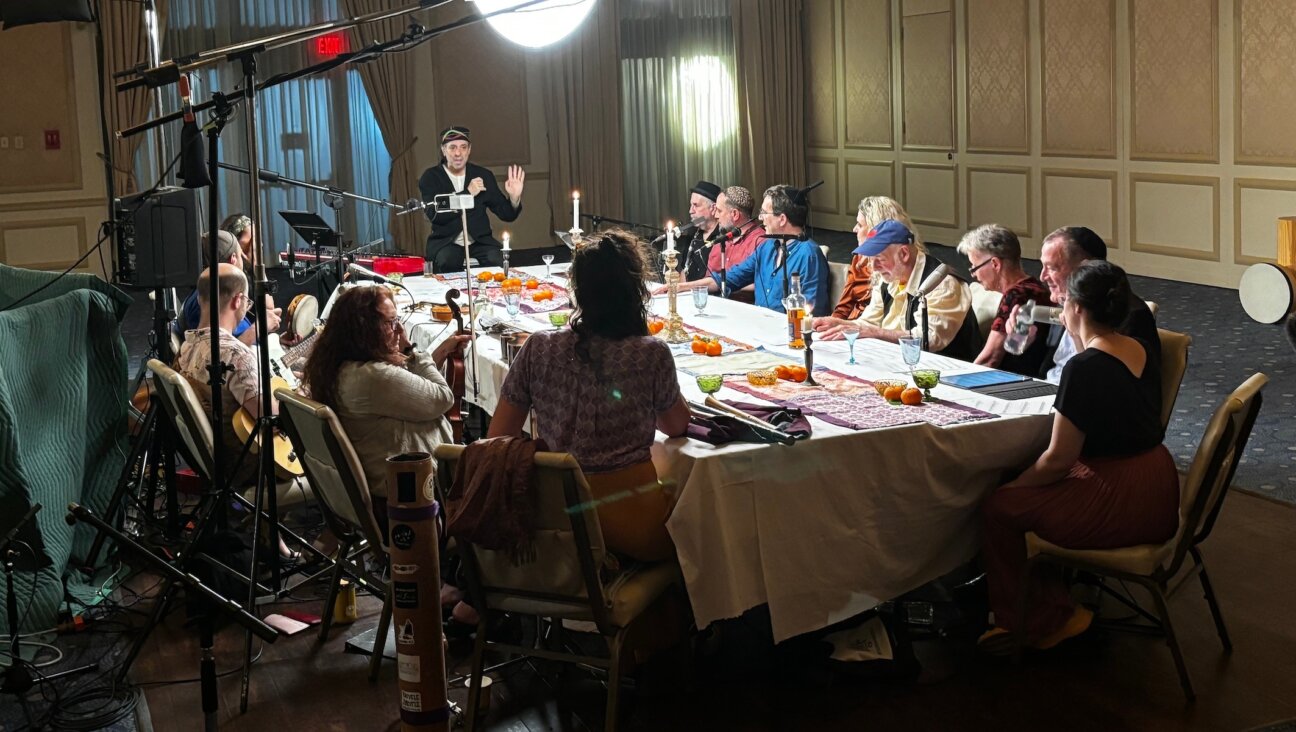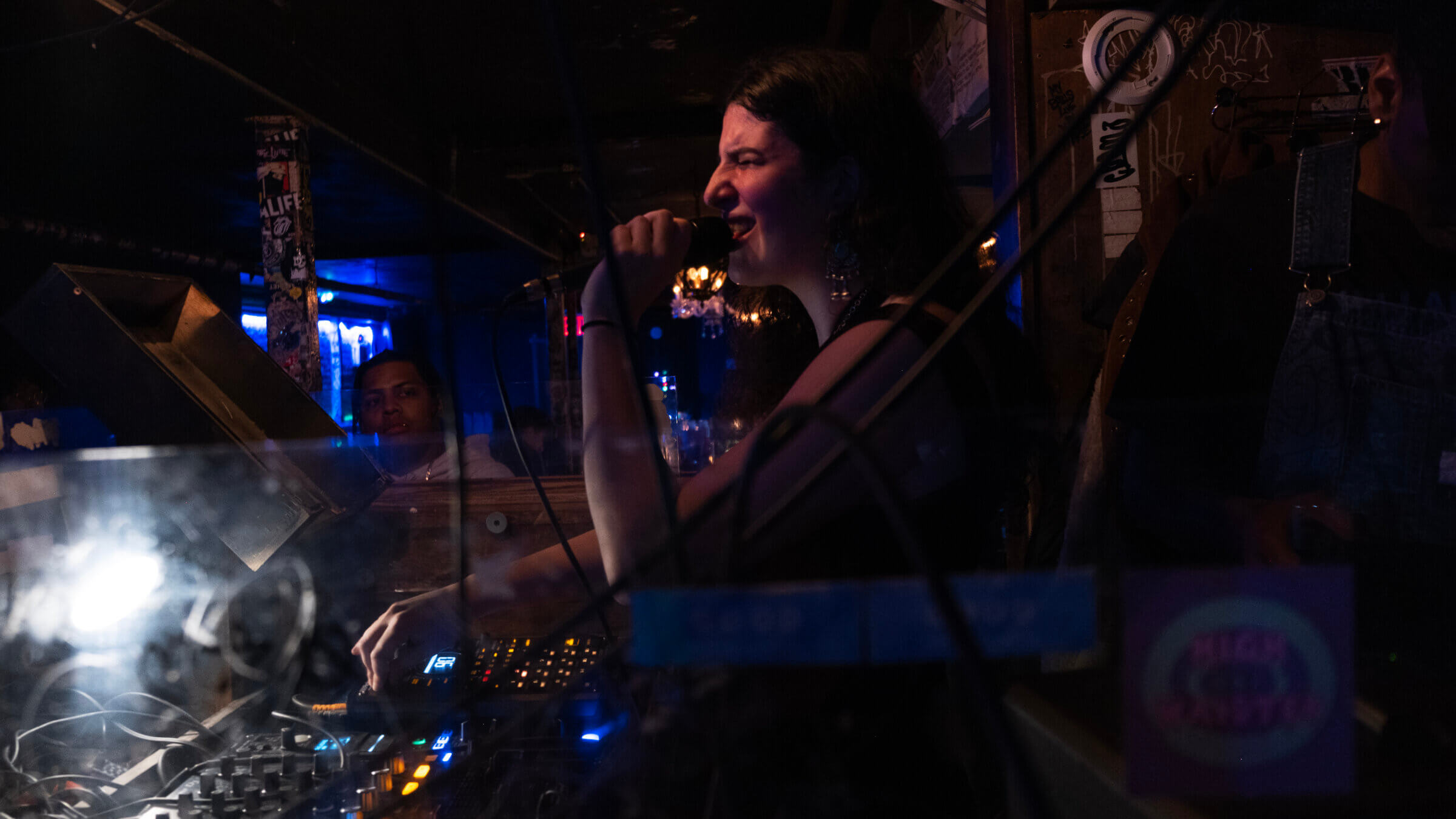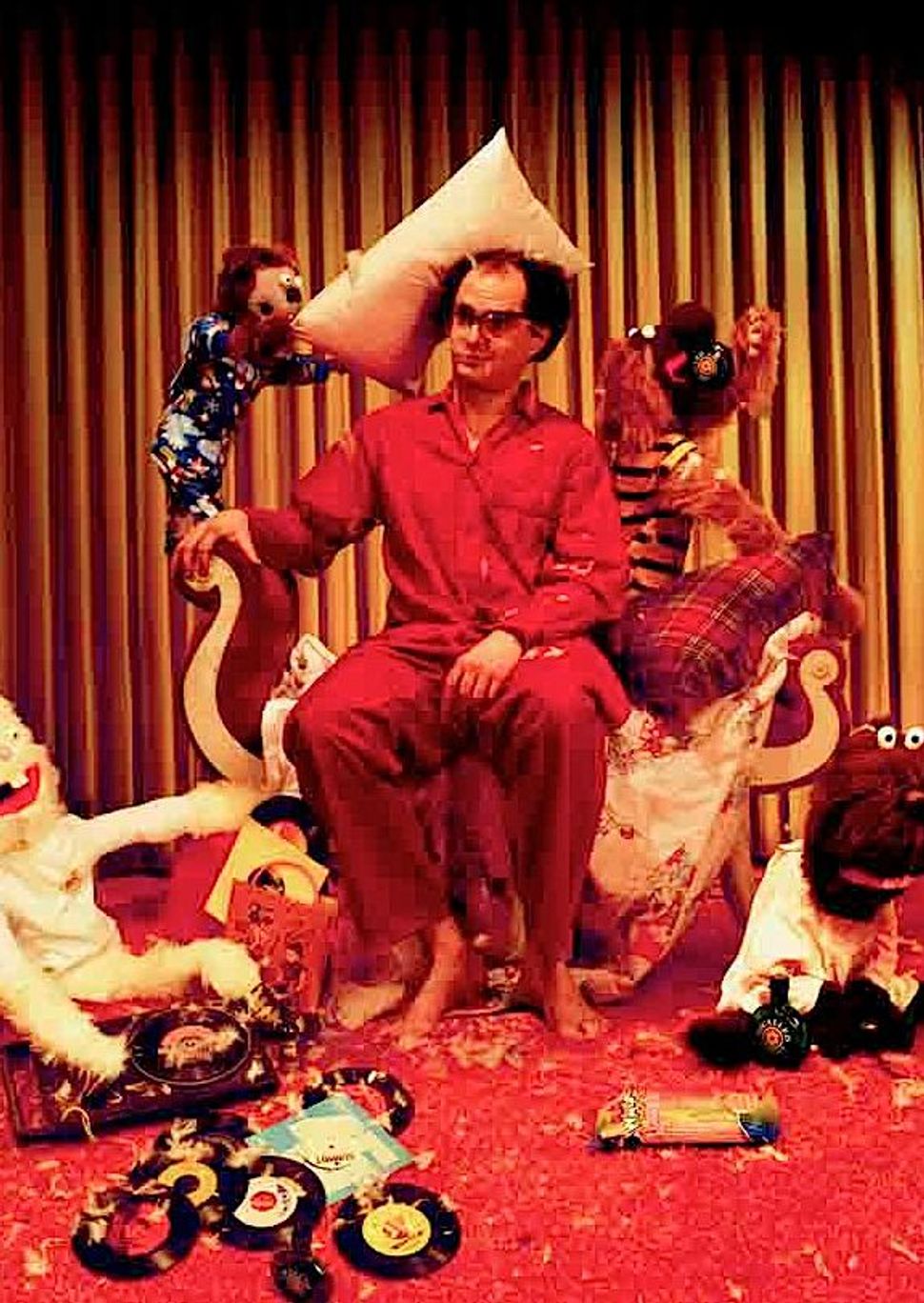New York klezmer legend Frank London is gearing up to fight for his life. But first, one more show.
London and his collaborators recorded new Jewish music on the eve of his admission to the hospital for cancer treatment

London and his collaborators recorded new Jewish music on the eve of his admission to the hospital for cancer treatment

With Kleztronica, Kaia Berman-Peters blends klezmer elements with electronic dance music

RIO DE JANEIRO (JTA) — A new opera based on an 86-year-old Yiddish poem about a Taino indigenous chief who resisted the Spanish invaders will have its premiere in Havana next month. “Hatuey: Memory of Fire,” will first be performed in Havana on March 3, reported the New York Times. Composed by Frank London of the Klezmatics, the…

The story of the Golem has been told in literature, film and theater, including a puppet production created in 1997 by the Czechoslovak-American Marionette Theatre. Now that show is back as part of La Mama Experimental Theatre Club’s 50th anniversary season, featuring music by The Klezmatics trumpeter Frank London. Unusually for the company, the show…

Thursday November 3rd, 7pm Jewish Art for the New Millennium Living Theater @ 21 Clinton Street, New York City Frank London, Judith Malina and Jerome Rothenberg Curated by Jake Marmer Series designed by Dan Friedman The Jewish Daily Forward presents the fourth installment in a new series of innovative arts programming. “Jewish Art for the…

Maybe it was only a matter of time before Socalled, the frizzy-haired, klezmer hip-hop hipster, tried to sidestep his ever-expanding identity as a “Jewish artist.” The arbiters of Jewish cultural identity go to great lengths to rope in the eclectic and the original, and a klezmer hip-hopper is a no-brainer. But no one wants to…

A Monument to Hatuey in Baracoa, Cuba. Photo by Michal Zalewski. A version of this post appeared in Yiddish. In 1931, Yiddish poet, journalist and editor Ascher Penn published “Hatuey,” a 126-page epic poem about a Taíno chieftain who fought against the Spanish invasion of Cuba at the beginning of the 16th century, and who…

Is there a grouch in the world who can maintain a proper scowl while listening to French swing? There is something about the sound of this music (is it the sweet, kaleidoscopic chord changes, or the bouncy, peripatetic bass lines?) that seems to rob even the devout pessimist of any meaningful sense of gloom. Wistfulness…








במשך פֿון זיבן יאָר האָט דזשעף לויִס אַוועקגעגעבן צען טויזנט שפּײַזקאַרטלעך.
100% of profits support our journalism